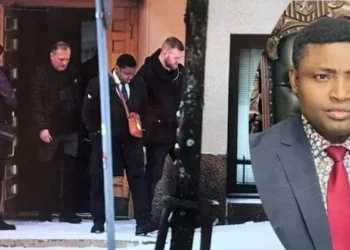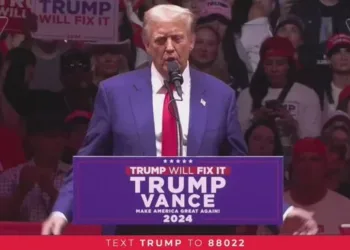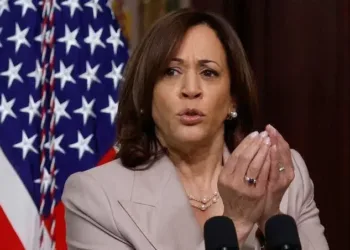During the hearing at the Presidential Election Petition Court, two video clips were presented as evidence by the Labour Party and its presidential candidate, Peter Obi.
They were submitted to support their petition challenging the conduct and outcome of the February 25 presidential election.
The petitioners’ counsel, Jubril Okutekpa (SAN), informed the court that they had issued subpoenas to Channels Television, requesting the recordings stored on two flash drives. Okutekpa revealed that the TV station had been served with two separate subpoenas on May 30 and June 6. Channels Television sent one of its staff members to present the requested evidence.
The five-member panel, led by Justice Haruna Tsammani, admitted the subpoenas as evidence and labeled them as Exhibits PBH-1 and PBH-2.
One of the flash drives contained video clips of an interview with the Chairman of INEC, Prof Mahmoud Yakubu, conducted before the general elections. In the interview, Yakubu assured that the election results would be transmitted electronically in real-time. The other flash drive contained a press conference by Festus Okoye, a national commissioner of the commission, reaffirming the commission’s commitment to electronic transmission of results.
To present the video clips in court, a senior reporter and editor from Channels TV, Lucky Obese-Alawode, was summoned as a witness. However, the respondents in the petition strongly objected to this move.
Akin Olujinmi (SAN), counsel for the President, questioned the competence of the witness, arguing that his statement had not been filed with the petition. Referring to the Electoral Act 2022, Olujinmi argued that the petition should have been filed within 21 days after the election results were declared.
He contended that all necessary documents, including the list of witnesses, should have been attached to the petition at the time of filing. Olujinmi stated that the witness was not listed by the petitioners and his statement was not attached, making him an incompetent witness.
The Independent National Electoral Commission (INEC) also supported the objections, stating that the petitioners should have included the proposed evidence in their petition.
However, the petitioners’ counsel, Okutekpa (SAN), argued that the witness was competent to testify as the subpoena was a court order beyond his control.
Despite the objections, the panel admitted the two flash drives as evidence and marked them as Exhibits PBH-3 and PBH-4.
When the petitioners’ counsel requested to play the contents of the flash drives in court, the respondents disagreed, except for the electoral commission, which remained indifferent.
Olujimi maintained that his client had not received a copy of the flash drive and argued that playing the video clips without prior knowledge of their content would violate their right to a fair hearing.
Solomon Umoh (SAN), counsel for the All Progressives Congress, also argued that playing the content of the flash drives without serving them on the respondents beforehand would be an ambush.
The chairman of the panel, Justice Tsammani, ruled that the respondents’ objections were not against playing the video clips but were based on the lack of prior service. Due to time constraints, he adjourned the matter to Saturday afternoon for the video clips to be played in open court.
Read Also: Afe Babalola says National Assembly Members should be paid Sitting Allowance Not Salaries










